34 F. high in the Twin Cities Sunday (early). Afternoon temperatures fell thru the 20s.
27 F. average high for December 16.
26 F. high on December 16, 2011.
Trace of snow fell Sunday in the Twin Cities.
12.4" snow at KMSP so far this winter season.
16.4" normal snowfall as of December 16.
1" snow on the ground in the Twin Cities.
December Daffodils
My fearless sister lives in Lancaster county, Pennsylvania. Amish country. Yes, I'm America's first Amish meteorologist.
Not really, but my Director of Marketing and Hype told me to say that.
Yesterday Joan e-mailed me photos of daffodils
and hyacinth coming up in her yard. On December 16. She was at a loss
for words. So am I. It sums up the supernaturally surreal year America
has endured: feeble snows, wilting heat, derechos, super-storms.
NOAA reports the first half of December was 7-9 F. warmer than average east of the Rockies. Check the details below.
Winter is late again, but a turn to colder
weather is as inevitable as gravity. Fresh burts of Canadian air often
spin up big storms. Chicago may get roughed up with heavy snow by
Thursday. Another major storm tracks south & east of Minnesota after
Christmas. Both storms should take a southerly track (echoes of El
Nino?) with no shovel-worthy storms close to home looking out 2 weeks.
Dig out the coats: although no blistering cold waves are imminent, "highs" will be stuck in the teens and 20s Christmas week.
We're walking around with heavy hearts after Friday's senseless tragedy in Connecticut.
We're all residents of Newtown now.
Unlikely Garden Guests. My sister (Joan) lives in
Lancaster County, Pennsylvania, a little more than an hour west of
Philadelphia. Yesterday she sent me a few photos of the flowers coming
up in her yard - wondering if I knew what was going on. The short
answer: I'm just as baffled as she is. Yes, it's a little early for
spring fever.
Warm First Half of December. Here is a NOAA map
showing temperature anomalies from December 1 thru December 14, showing
an unusual warm bias from the Plains into the Ohio Valley and Northeast,
average highs and lows as much as +5 F. warmer than normal. Thanks to
Joseph Renken at
Tri-States Weather for passing this one along.
December Records in Illinois. From the
Chicago office
of the National Weather Service: "The first half of December is about
to come to a close this evening, and this December 1-15th is going to
be the 2nd warmest start to December ever in Rockford, and 3rd warmest
on record in Chicago. The only year in our lifetime that we've had a
December start off warmer that this year was back in 1998. In case you
forgot or didn't live in the area back then, that was the winter of the
New Years Day blizzard - when Chicago picked up a foot and a half of
snow.
Thursday Snow Potential. Odds are the next storm
will detour south of Minnesota late Wednesday into Friday morning.
Thursday may be a tough travel day from Des Moines and the Quad Cities
to Madison, Rockford and Milwaukee - Chicago may see lake effect snow
bands into part of Friday. Computer model image: Ham Weather.
No Big Snows (or Thaws). A chilly week is on tap,
with a chance of a coating to maybe 1" of snow Tuesday from a weak upper
air disturbance. Thursday's storm should track south/east of Minnesota,
a dry (cold) weekend shaping up for travel plans, with dry weather
spilling over into Christmas (teens north, low 20s southern Minnesota).
ECMWF data above, high temperature predictions in Celsius.
Subzero New Year's? It's still 2 weeks away, so my
confidence level is lower than usual, but the GFS is predicting -25 F at
850 mb by New Year's Day, which could mean wake-up temperatures as cold
as -5 to -10 F. Let's see a few more model runs, but this could be our
first outbreak of truly bitter air.
Serious Flakes. Here is a photo of snowflakes taken
today by our Warning Coordination Meteorologist, John Jensenius. How
much snow has everyone gotten? Thanks to the Gray, Maine NWS, via
Facebook.
The Running of the Puppies. I couldn't resist including this tweet, courtesy of WeatherNation TV, taken in Cascade Mountain, Washington state.
Drought Outlook Thru February.
NOAA
and USDA are predicting some improvement in the drought over eastern
Minnesota and Wisconsin over the next 2 months, but I'm scratching my
head a bit. The ground is now mostly frozen. Even if we see significant
moisture (and melting) precious little water will enter the top foot or
two of topsoil. What will really make the difference is late winter and
early spring snows and heavy rainfall events.
West Wing Reports. No White House photos from family meetings. But the family of Emilie Parker, who was 6, released this on their own:
"
By now the pros and cons of the gun issue are well known, but
here is the question that must be asked: is what happened Friday the new
normal? Of course there are legitimate reasons for both pleasure and
protection to own guns, but if the slaughter of innocent children is not
bad enough to make us rethink what we can do to keep guns out of the
hands of the mentally ill, what is bad enough? To what depths of horror
must we sink before we say, "this cannot be tolerated"? Are we willing
to settle for a culture in which kingergarten children are no longer
safe in the classroom, and a visit to a mall or movie is a
life-threatening experience?
In recent years there has been no serious effort to address this
problem, no piece of gun legislation was seriously considered during
this session of Congress. It is the subject no one wants to talk about
for fear of offending the powerful gun lobby. Perhaps it it time to
remember what Ed Murrow told us, that "we are not descendanted from
fearful people.". Our forefathers had the courage to tell the most
powerful country of their day, you have gone too far. We can tolerate
this no more. And upon their courage America was built. Have we, their
descendants, become so afraid of the possible political consequences
that we are unwilling to explore ways to make a safer world for our
children? I cannot believe we have. I think we are better than that." - Bob Schieffer, CBS
Face the Nation, December 16, 2012
"I Am Adam Lanza's Mother". Mental illness is
pervasive. Access to guns is relatively easy in the USA - a terrifying
convergence of circumstances. Here is an excerpt of a must-read article
at
Gawker.com: "...
I
am sharing this story because I am Adam Lanza's mother. I am Dylan
Klebold's and Eric Harris's mother. I am Jason Holmes's mother. I am
Jared Loughner's mother. I am Seung-Hui Cho's mother. And these boys—and
their mothers—need help. In the wake of another horrific national
tragedy, it's easy to talk about guns. But it's time to talk about
mental illness. According to Mother Jones, since 1982, 61 mass murders
involving firearms have occurred throughout the country. Of these, 43
of the killers were white males, and only one was a woman. Mother Jones
focused on whether the killers obtained their guns legally (most did).
But this highly visible sign of mental illness should lead us to
consider how many people in the U.S. live in fear, like I do..."
Top 10 Ski Gadgets For 2013. Details from
gizmag.com: "
So
far, the Northern Hemisphere's 2012-2013 ski season is off to a rather
sluggish start, at least in the heart of American ski country. It
looks like it could be another warm, dry year. That doesn't mean that
the skiing has to be boring, however. These ski-centric gadgets will
wring more enjoyment out of the big powder days that do come and provide
a fun distraction when conditions are less than ideal."
"Winter In Minneapolis"
"
It's winter in Minneapolis, and the gentle breezes blow, 70
miles per hour at 52 below! Oh, how I love Minneapolis, when the snow's
up your butt; you take a breath of winter air, and your nose is frozen
shut. Yes, the weather here is wonderful. You may think I'm a fool. I
could never leave Minneapolis, 'cause I'm frozen to the stool." - Anonymous
Grim News For Snow Lovers. It was the worst of all
worlds for Minnesotans who like snow - Saturday's nearly half inch of
rain and highs in the mid to upper 30s combined to melt a lot of snow -
only 1" left (officially) at MSP International, 3" Eau Claire and 6" up
at St. Cloud. After a mild start temperatures fell thru the 20s
yesterday, leaving many roads icy.
A Tad Bit Icy. Thanks to Tami Sallis, who took a photo of a very icy parking lot up in Hibbing Sunday morning.
Paul's Conservation Minnesota Outlook for the Twin Cities and all of Minnesota:
TODAY: More clouds than sun. Light winds. High: 23
MONDAY NIGHT: Patchy clouds, still cold. Low: 14
TUESDAY: Light PM show - coating possible. Hgh: near 30
WEDNESDAY: Mostly cloudy and dry. Low: 17. High: 29
THURSDAY: Storm stays south/east of Minnesota. Mostly cloudy with a cold wind. Low: 12. High: 21
FRIDAY: Mix of clouds and sun, chilly. Low: 8. High: 22
SATURDAY: A cold, blue sky. Good travel conditions. Low: 11. High: 23
SUNDAY: Sunny, colder than average. Low: 7. High: 17
Christmas Eve: Plenty of sun, still chilly. Low: 4. High: 20
Christmas Day: Partly sunny - probably dry. Low: 6. High: 23
Climate Stories...
The End of Pasta. Who cares if the temperatures is
going up a few degrees? The impact on agriculture is already showing up
in the data, as described in this article at Newsweek and
The Daily Beast; here's an excerpt: "...
Three
grains—wheat, corn, and rice—account for most of the food humans
consume. All three are already suffering from climate change, but wheat
stands to fare the worst in the years ahead, for it is the grain most
vulnerable to high temperatures. That spells trouble not only for pasta
but also for bread, the most basic food of all. (Pasta is made from
the durum variety of wheat, while bread is generally made from more
common varieties, such as red spring.) “Wheat is a cool-season crop.
High temperatures are negative for its growth and quality, no doubt
about it,” says Frank Manthey, a professor at North Dakota State
University who advises the North Dakota Wheat Commission. Already, a
mere 1 degree Fahrenheit of global temperature rise over the past 50
years has caused a 5.5 percent decline in wheat production compared to
what would have occurred in the absence of global warming, according to
a study published by David Lobell, a professor at Stanford
University’s Center on Food Security and the Environment...."
Future Florida: Sea Level Rise Could Flood Parts of Island. A look at how vulnerable Florida is to rising sea level from
The Palm Beach Daily News; here's an excerpt: "...“
The
first thing is, as some of the hospitals in New York found out, you
don’t put your electrical infrastructure on the ground floor – most of
the electrical and drainage stuff starts at the second floor. Rather
than building a barrier, you allow storm surge to go through the
building. Looking at how to live with flooding might be one of the
mid-term answers.” South Florida has about 40 percent of the
vulnerable real estate in the United States, studies have shown. The
Florida Keys face the highest risk from sea level rise, followed by
Miami-Dade County. Forty percent of Miami-Dade is below 4 feet.
As barrier islands go, Palm Beach is a little better off. Highest
elevations are on the ocean side but there are some low-lying spaces on
the Intracoastal side, and that’s what concerns town officials most.
The storm surge during and after Hurricane Sandy was exacerbated by
higher seasonal tides, and there was some flooding on the west side of
the island..."
Photo credit above: Daily News Photo by Jeffrey Langlois. "
Sections of the Everglades Club golf course and surrounding areas of Midtown lie less than 2 feet above high-tide sea level."
Blind Faith Of Climate Change Deniers Endangers Us All. Here's an excerpt of an article at
The Los Angeles Times: "
Great harm is what comes from denying scientific facts about 21st century issues. That is the concern of the second Newsweek article.
Written by Mark Hertsgaard, author of "Hot: Living Through the Next
Fifty Years on Earth," it documents a stark threat to mankind's food
supply: "By 2050, scientists project, the world's leading wheat belts --
the U.S. and Canadian Midwest, northern China, India, Russia, and
Australia -- on average will experience, every other year, a hotter
summer than the hottest summer now on record. Wheat production in that
period could decline between 23 and 27 percent, reports the International Food Policy Research Institute (IFPRI), unless swift action is taken to limit temperature rise and develop crop varieties that can tolerate a hotter world..."
Cartoon credit above: "
Climate change deniers refuse to accept scientific warnings."
(David Horsey / Los Angeles Times / December 13, 2012)

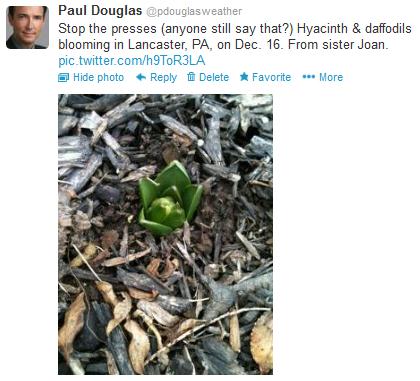
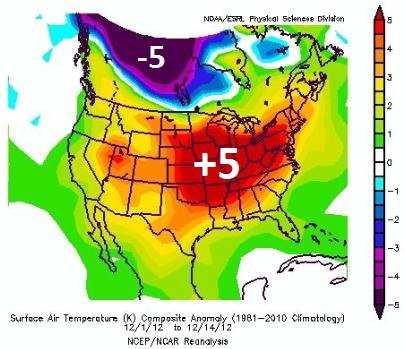
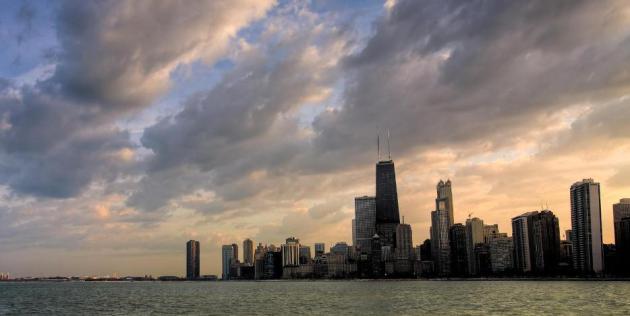
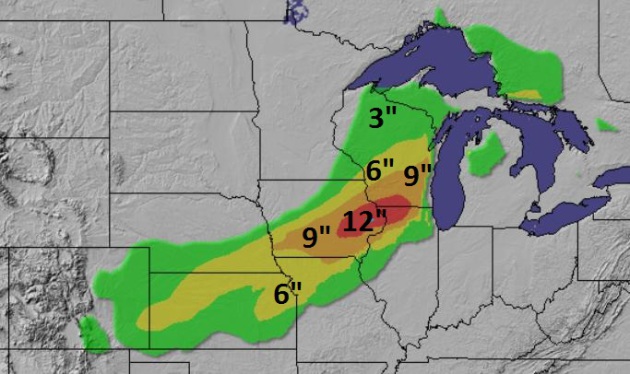


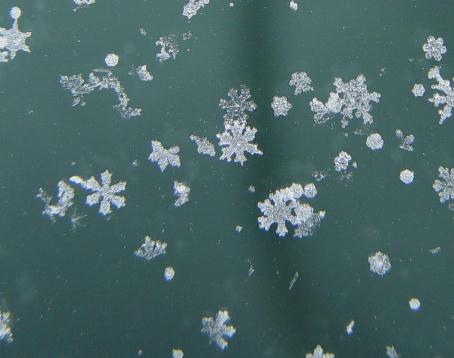
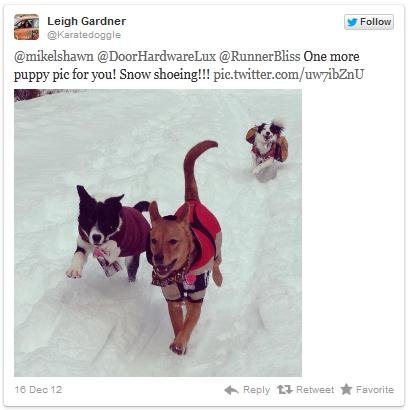
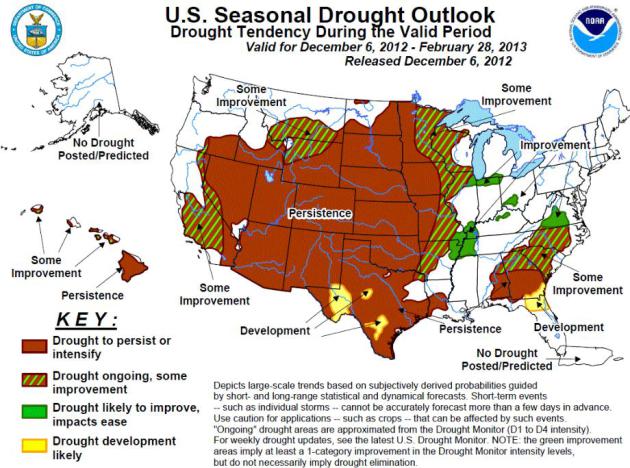
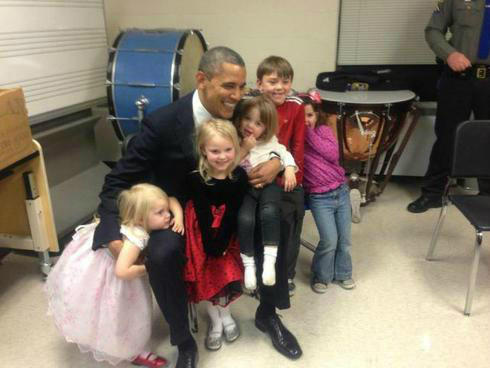

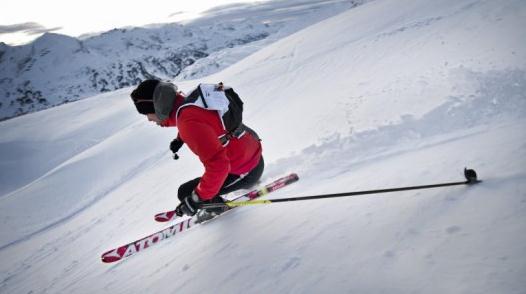
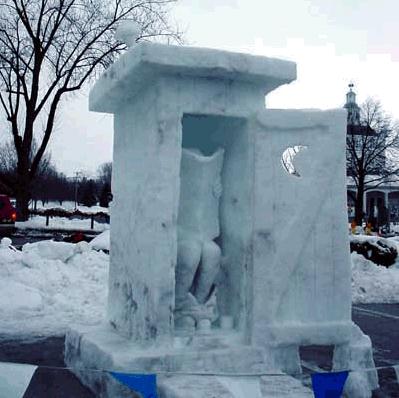


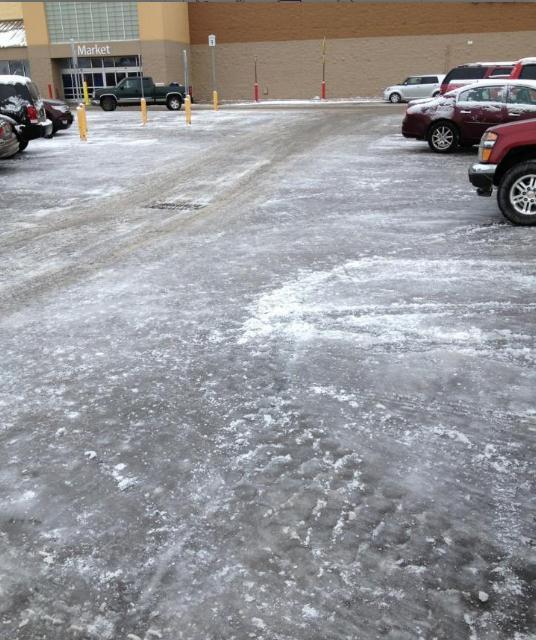


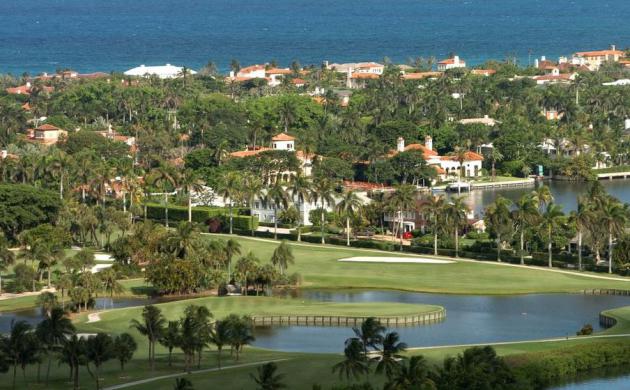
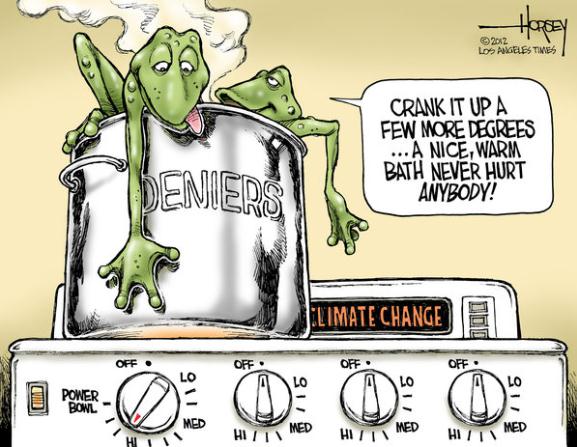
No comments:
Post a Comment